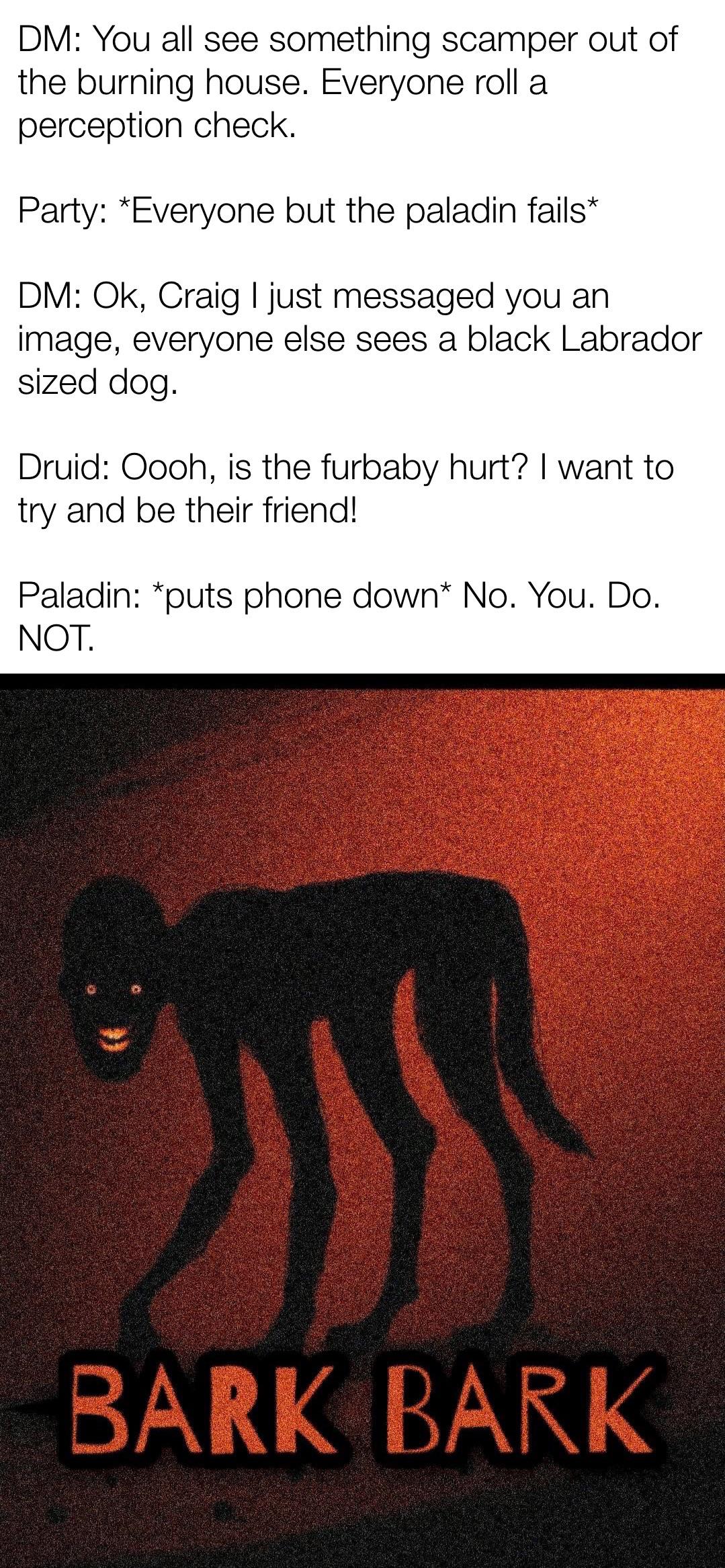this post was submitted on 20 Oct 2023
673 points (98.3% liked)
RPGMemes
12583 readers
194 users here now
Humor, jokes, memes about TTRPGs
founded 2 years ago
MODERATORS
you are viewing a single comment's thread
view the rest of the comments
view the rest of the comments

The player could describe what they saw, but nobody except the GM knows if it's true.
It's equally plausible that the paladin failed the check and saw a monster when there was only a dog, or that they passed the check and saw a monster because there was in fact a monster. Their argument to the party would be the same in either case: "that's no dog, it's a ~~space station~~ monster".
The party then must question who saw the correct thing. Did the paladin actually see something everyone else missed? Or are they just seeing things? My point was that the players should not immediately be able to discern the truth. I find that this kind of uncertainty breeds intrigue!